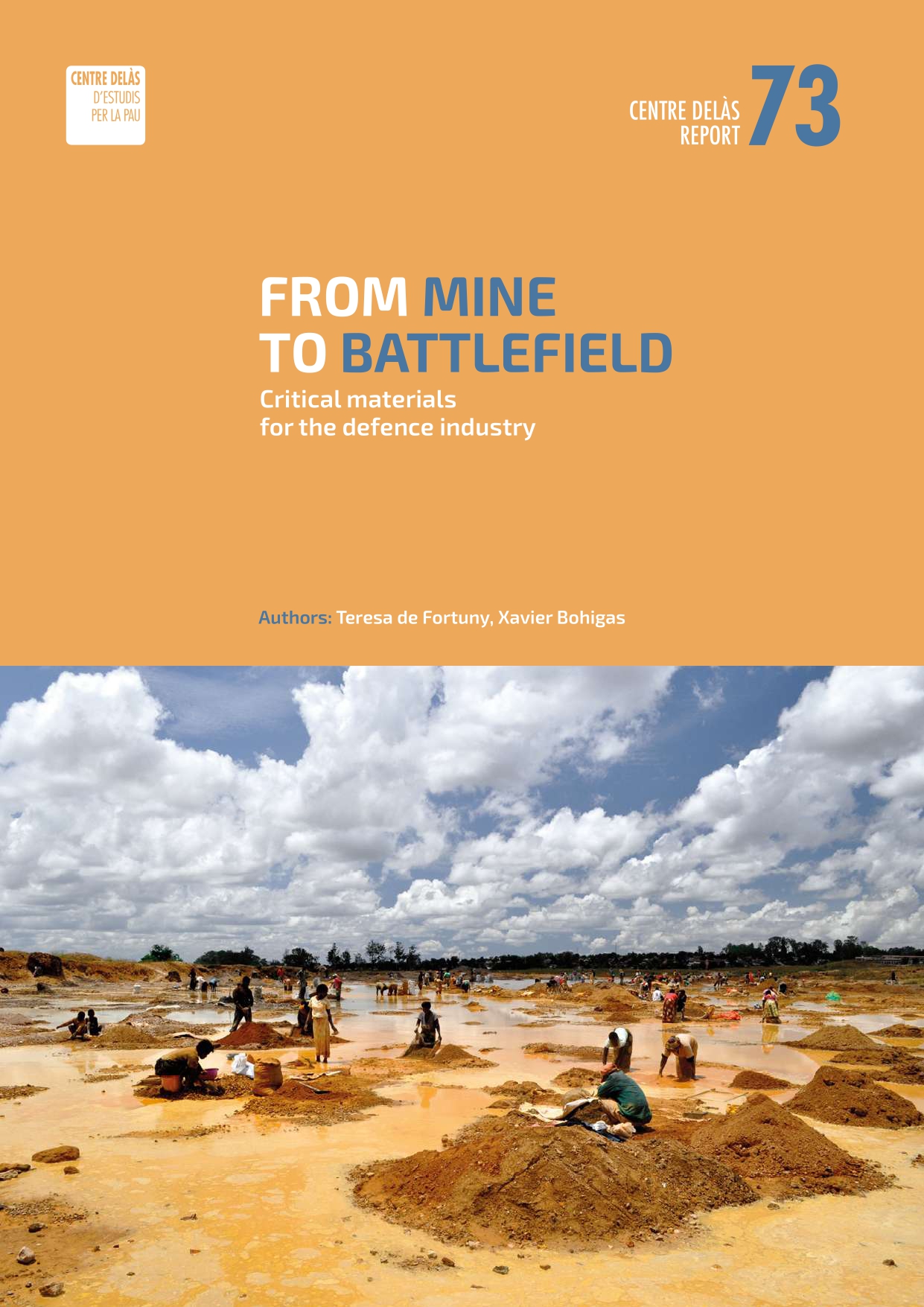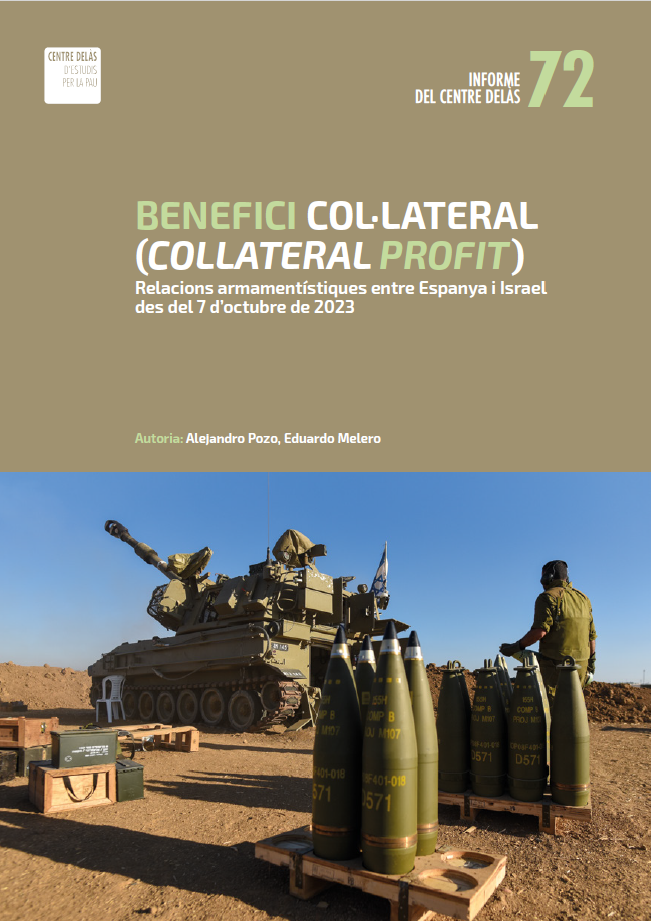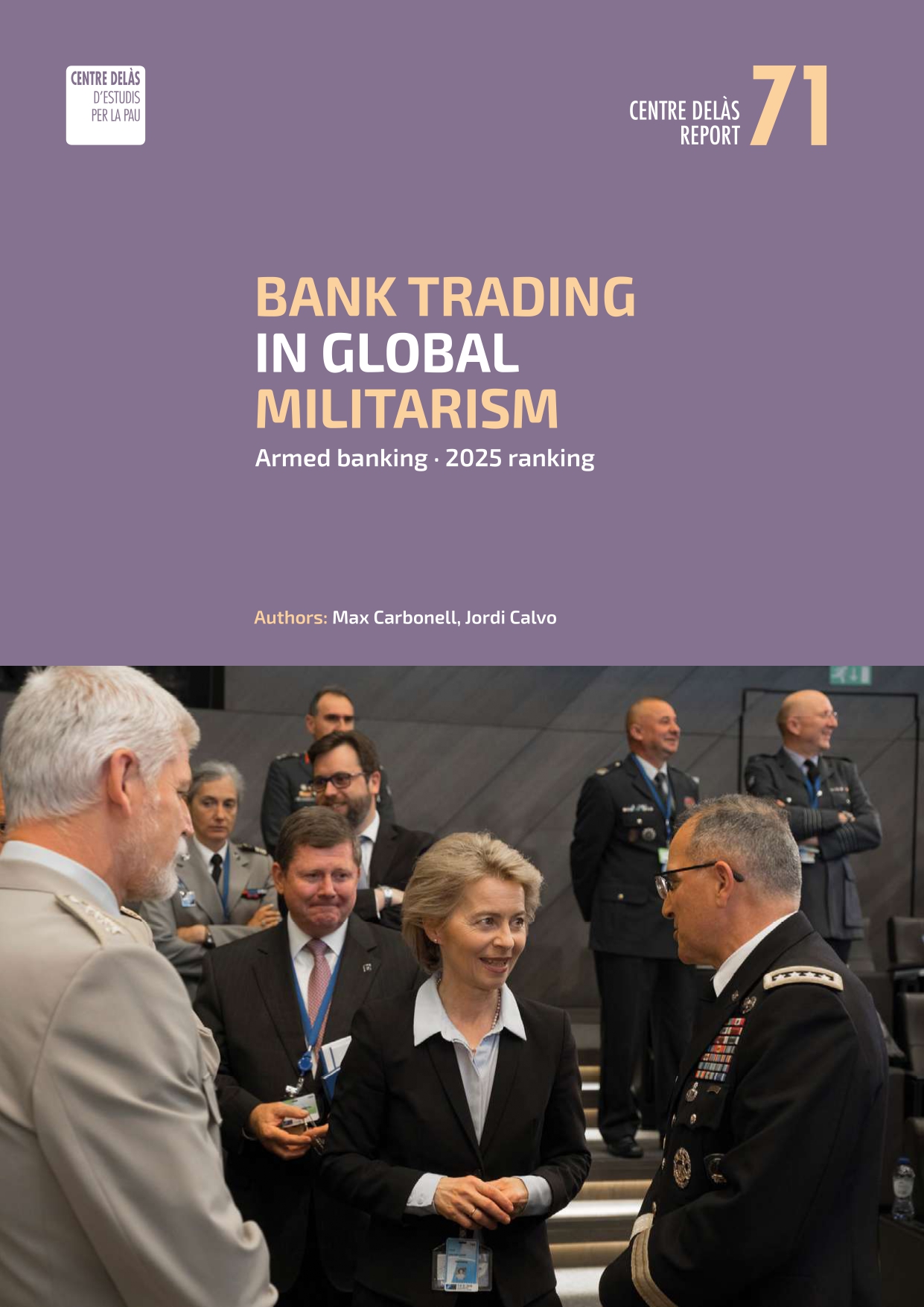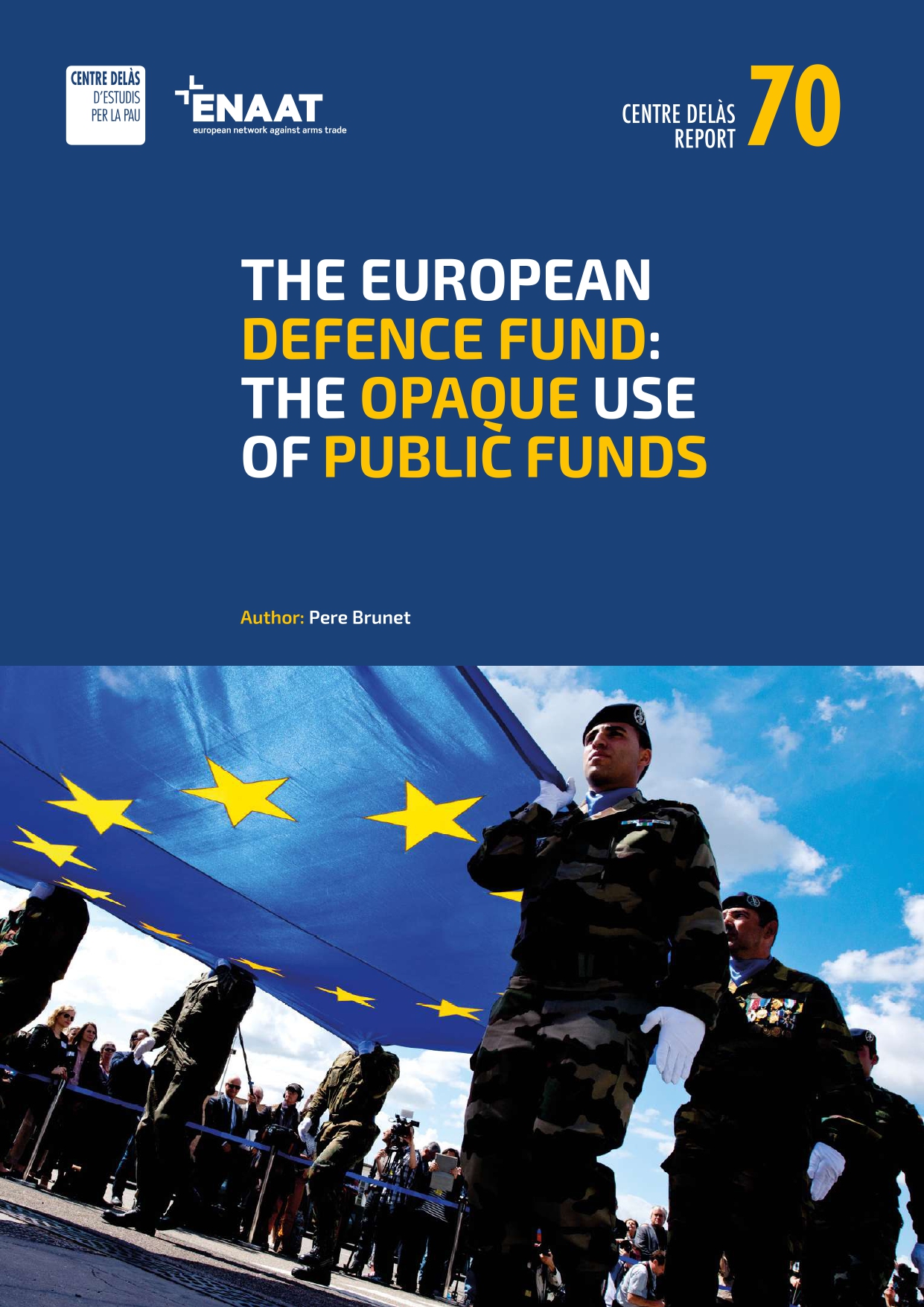Posted in Barcelona
Statement from the Delàs Centre on the occasion of the state of emergency decreed in Spain and the COVID-19 crisis
In the current emergency situation caused by the coronavirus pandemic, we give our full support to all professionals who are fighting against COVID-19 and all those people who make it possible for our lives to continue. We also express our total opposition to any security and militaristic response to the current situation.
The coronavirus crisis is clearly a human security crisis. It is health professionals, as well as those working in basic social services and research, who can address this emergency and provide us with protection and safety. Such situations can only be tackled with public care systems, with management based on objective scientific observations and with structures that are both globally coordinated and locally active.
This is not the situation in the Spanish state. The 2008 crisis gave wings to more neoliberal policies of heavy cuts and privatization, with serious consequences for the public health system and other pillars of the welfare state that are guardians of human security. The management of that crisis has largely generated the fragility with which we are now facing this one.
The working classes and the most vulnerable sectors were the biggest victims of that crisis, and we must ensure that it does not happen again.
On the other hand, the military sector has traditionally enjoyed favourable treatment in the preparation of State budgets, based on its supposed role as the guarantor of our security. However, with the COVID-19 crisis, it has once again been proven that military capabilities can do nothing to stop or confront the real emergencies that affect people’s lives.
If we had used a small part of the resources allocated to militarization and armament during the last decade (€206,745 million since 2008) with human security criteria, we would now undoubtedly have a more robust and efficient public health system.
In addition to the obvious loss of opportunity cost of financing armies and arsenals with our taxes, we also want to denounce that the measures decreed by the Government give the army, mainly through the Emergency Military Unit, a prominent role in the management of the crisis. The EMU has only a small specific allocation within the budget of the Ministry of Defence, which in 2018 was 31 million (0.32% of the 10.2 billion spent on Defence), so these actions seem more like a face washing and a way of legitimising the SAF. On the other hand, their work should be carried out by civil protection corps, which are specialized in these tasks but have much more modest staffs and resources.
However, the deployment of Air Force and infantry troops (2,600 troops on March 19) is even more worrying. The presence of the EMU and armed military in the streets represents a militarization of public life that could be the prelude to future repressive measures that we must strongly reject and condemn.
We therefore consider fundamental the role of civil society in opposing these policies. Post-crisis management will be equally relevant, since we must avoid, as has often happened, the normalisation of what should be exceptional and the consolidation of cuts in rights and freedoms as well as the precarisation of living conditions, which affect the most vulnerable sectors of our society with greater virulence. This time, instead, we must give resources to the sectors that truly provide people with security, such as health, education, employment and research. Current experience must serve to make clear the need to fight for a system that guarantees rights and freedoms and universal, high-quality public services, with criteria of environmental sustainability, that puts life at the centre and leaves the desire for profit aside.
We therefore ask that, in the case of a crisis caused by a virus that knows no borders, measures be taken for public health and that only civil and humanitarian protection mechanisms be used, instead of relying on surveillance, control of people and militarised security measures, which are precisely those that are systematically used on our borders.
Our security and protection cannot continue to be managed by militarized structures that seek to defend the supposed interests of nation-states and their borders. Because the great crises of the 21st century will not consider borders. To face a pandemic like COVID-19, more health resources are needed, not more militarisation. Let us change the national security paradigm for a human security paradigm, which will undoubtedly be more effective, fairer and sustainable.
You can download the full release in Spanish and Catalan here.




